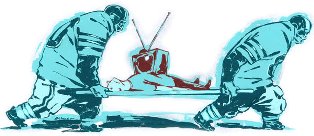August 14th, 2011 by Dinah Miller, M.D. in Opinion, True Stories
No Comments »


 Benedict Carey is a New York Times mental health reporter. In last Sunday’s Times, he wrote about Joe Holt, a man with a diagnosis of schizophrenia. Mr. Holt was dealt a particularly tough deck of cards: in addition to a diagnosis of schizophrenia, he had a horrible and traumatic childhood with much loss, placement in a facility where he was physically abused, and periods of homelessness as a teenager. He now has a stable marriage, has adopted children and keeps numerous foster children, and holds two jobs, one as a computer consultant and another as a therapist (if I read that correctly). He struggles with his emotional life, but my take on this was that this is one extremely resilient man who has waged a successful battle against many demons and his story is inspirational.
Benedict Carey is a New York Times mental health reporter. In last Sunday’s Times, he wrote about Joe Holt, a man with a diagnosis of schizophrenia. Mr. Holt was dealt a particularly tough deck of cards: in addition to a diagnosis of schizophrenia, he had a horrible and traumatic childhood with much loss, placement in a facility where he was physically abused, and periods of homelessness as a teenager. He now has a stable marriage, has adopted children and keeps numerous foster children, and holds two jobs, one as a computer consultant and another as a therapist (if I read that correctly). He struggles with his emotional life, but my take on this was that this is one extremely resilient man who has waged a successful battle against many demons and his story is inspirational.
So Benedict Carey often writes stories that are skeptical, if not outright critical, of the mental health field. This story did not have that tone. I found it interesting, though, that he chose a person with a diagnosis of schizophrenia who’s life was not “typical.” What did I find not typical? Read more »
*This blog post was originally published at Shrink Rap*
February 6th, 2011 by Dinah Miller, M.D. in Health Tips, Humor
No Comments »


 So it’s Super Bowl Sunday and the fans are psychiatric patients waiting to happen — the beer and the beer and the beer, and maybe the fights will break out, and they’ll all end up in therapy. Oh, the angst and the panic, and the pre-game anxiety, and the post-game euphoria or depression.
So it’s Super Bowl Sunday and the fans are psychiatric patients waiting to happen — the beer and the beer and the beer, and maybe the fights will break out, and they’ll all end up in therapy. Oh, the angst and the panic, and the pre-game anxiety, and the post-game euphoria or depression.
New York Times reporter Benedict Carey talks about treatment options in his article, “A Home Treatment Kit for Super Bowl Suffering.” Mr. Carey suggests:
Breathing exercises are highly recommended and become increasingly important as the football contest nears the fourth quarter, when events on the field are likely to prompt strong physiological reactions, like a pounding heart, hyperventilation, even dizziness. These internal cues, as they’re called, can escalate the feeling of panic, a self-reinforcing cycle resulting in groans and cries that can be frightening to small children, pets and sometimes neighbors.
In the final minutes of the game, be forewarned: Many patients will move beyond the reach of therapy. Their faces may change, their breathing appear to stop. Researchers have not determined whether this state is closer to Buddhist meditation or to the experience of freefall from an airplane. All that is known is that, once in it, patients will fall back on primal coping methods, behaviors learned in childhood within the cultural context of their family.
Like emitting screams. Or leaping in an animated way, as if the floor were on fire. Or falling on their back and moving their arms and legs like an overturned beetle, in celebratory fashion.
This post is dedicated to my husband and son.
*This blog post was originally published at Shrink Rap*

 Benedict Carey is a New York Times mental health reporter. In last Sunday’s Times, he wrote about Joe Holt, a man with a diagnosis of schizophrenia. Mr. Holt was dealt a particularly tough deck of cards: in addition to a diagnosis of schizophrenia, he had a horrible and traumatic childhood with much loss, placement in a facility where he was physically abused, and periods of homelessness as a teenager. He now has a stable marriage, has adopted children and keeps numerous foster children, and holds two jobs, one as a computer consultant and another as a therapist (if I read that correctly). He struggles with his emotional life, but my take on this was that this is one extremely resilient man who has waged a successful battle against many demons and his story is inspirational.
Benedict Carey is a New York Times mental health reporter. In last Sunday’s Times, he wrote about Joe Holt, a man with a diagnosis of schizophrenia. Mr. Holt was dealt a particularly tough deck of cards: in addition to a diagnosis of schizophrenia, he had a horrible and traumatic childhood with much loss, placement in a facility where he was physically abused, and periods of homelessness as a teenager. He now has a stable marriage, has adopted children and keeps numerous foster children, and holds two jobs, one as a computer consultant and another as a therapist (if I read that correctly). He struggles with his emotional life, but my take on this was that this is one extremely resilient man who has waged a successful battle against many demons and his story is inspirational.











